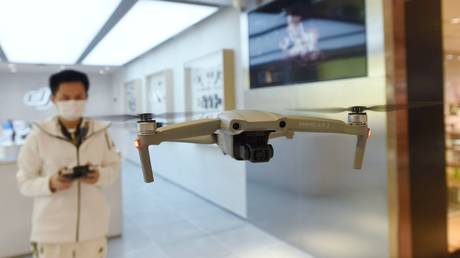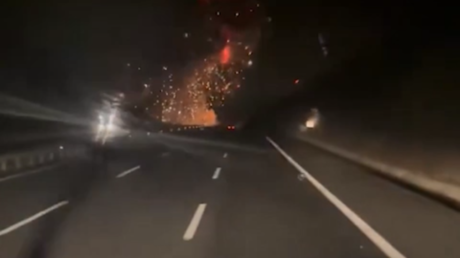
International sales of weaponizable civilian aircraft will require a license starting in September
The Chinese government has announced a two-year regime of export controls for civilian drones and components that can be used for military purposes. Some media outlets report that the restriction is likely meant to curb deployment of the aircraft on the battlefield in Ukraine.
The announcement was issued jointly by several governmental bodies on Monday. Two separate notices detailed which commercial drones and payloads will require an export license starting September 1.
The regulation applies to UAVs that can fly over the horizon of the operator, have endurance of at least 30 minutes, and a take-off weight of over 7kg. The same is true for robotic craft that can drop their cargo or are designed to accommodate non-authorized payloads.
A license will be required to export specific high-performance engines, cameras capable of transmitting a signal from a range of over 50km, control stations that can pilot more than ten drones simultaneously, and anti-drone payloads. Controls also apply to laser rangefinders, infrared-cameras, and point-of-view cameras with specifications that exceed certain thresholds.
The government issued a specific ban on the export of civilian drones if they are intended for “terrorist activities or military purposes.”
A spokesperson for the Ministry of Commerce expressed Beijing’s commitment to “maintaining global security and regional stability,” and reiterated the government’s opposition to the weaponization of civilian aircraft. The “moderate expansion” of the export controls is meant to demonstrate China’s responsibility in this regard, the explanation said.
The Associated Press linked the new rules with the conflict between Russia and Ukraine, in which both sides use civilian drones for reconnaissance and for dropping small explosives on enemy positions, according to frontline videos shared on social media.
Ukrainian Deputy Defense Minister Vitaly Deinega described the deployment of Chinese products in an interview last month, explaining that Kiev cannot officially purchase “anything Chinese so as not to hurt our relationship with the US,” and relies on intermediaries to supply quadcopter drones.
READ MORE: US curbs on chip sales to China could backfire – industry group
The Chinese government has distanced itself from the conflict and has denied that it provides arms to either side, rejecting US claims that it clandestinely supports Russia. Beijing has blamed Washington’s “Cold War mentality” and the expansion of NATO in Europe for triggering the hostilities in the first place.




